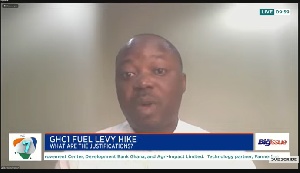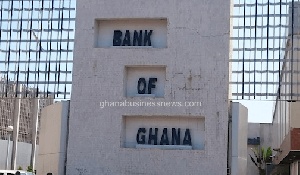- Home - News
- Elections 2024
- News Archive
- Crime & Punishment
- Politics
- Regional
- Editorial
- Health
- Ghanaians Abroad
- Tabloid
- Africa
- Religion
- Photo Archives
- Press Release
General News of Saturday, 7 June 2025
Source: www.ghanawebbers.com
GHC1.2bn emergency fuel cost ‘unjustified’ – Energy Analyst slams Govt
Benjamin Nsiah, Executive Director of the Centre for Environmental and Sustainable Energy, has raised concerns about the government's GHC1.2 billion plan for emergency fuel. He argues that this figure lacks transparency and does not match data from energy sector institutions.
His comments followed an interview with Energy Minister John Jinapor on June 4. Jinapor stated that GHC1.2 billion is needed to buy emergency liquid fuel to stabilize power supply.
On June 7, during an appearance on The Big Issue on Channel One TV, Nsiah questioned how the government calculated this estimate. He urged officials to clarify their reasoning behind the GHC1.2 billion figure.
Nsiah believes that much less money is needed for emergency fuel. He cited figures from GRIDCo and the Energy Commission, suggesting a cost of around $189 million for the year.
He noted that GRIDCo initially estimated $90 million but later revised it to $180 million for liquefied fuel. The Energy Commission projected costs at about $33 million.
Nsiah emphasized that emergency fuel is usually excluded from long-term energy planning due to its high cost and unreliability.
He also expressed concerns about inflated prices and potential corruption in procurement processes.
“I do not think we should buy light crude oil for $100 per barrel,” he said. “Diesel oil should not cost $1,600 per metric tonne either.”
If the GHC1.2 billion is indeed for liquid fuel, it implies a total annual spending of GHC2.4 billion on fuel, which he called unsustainable.











